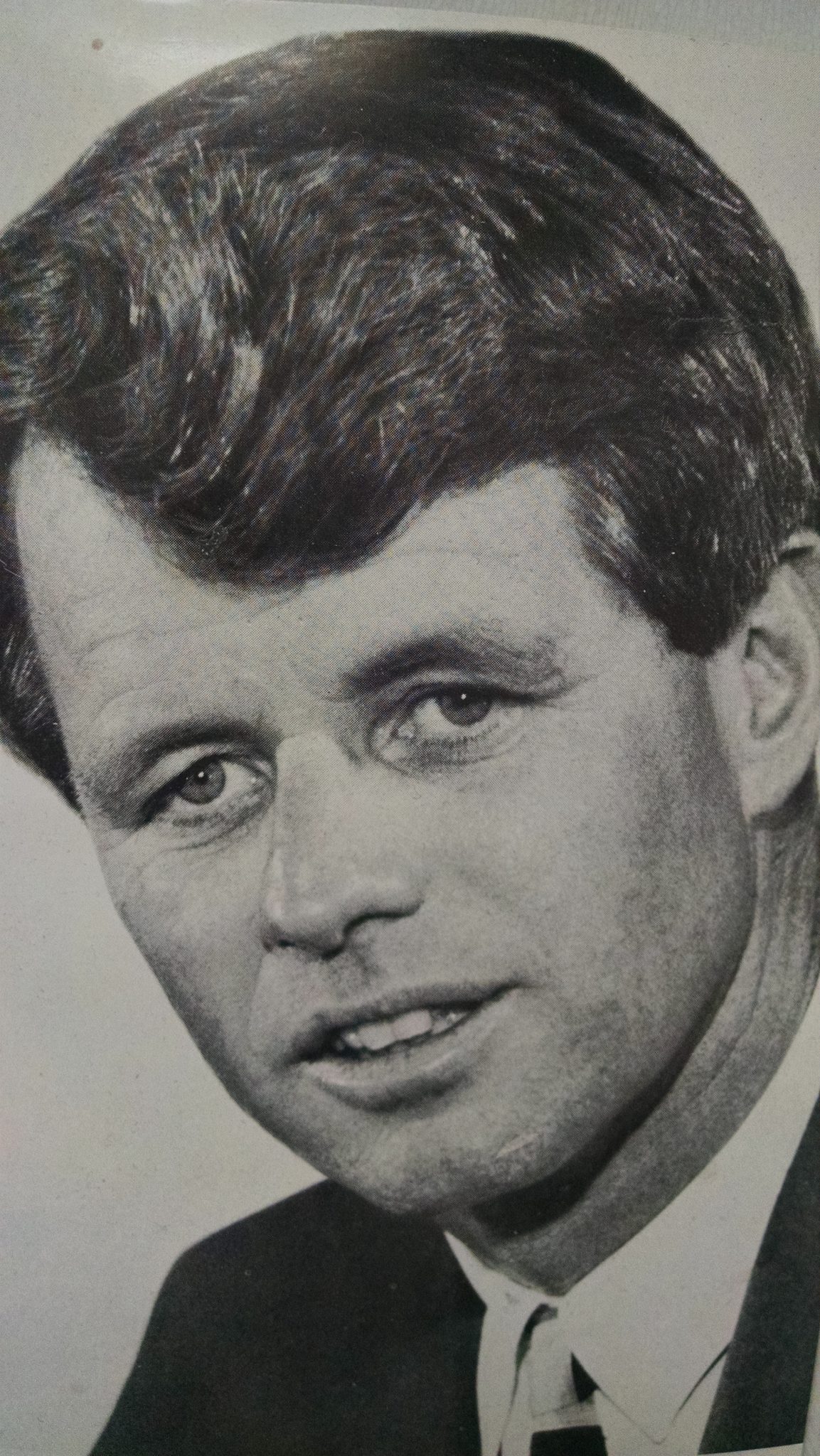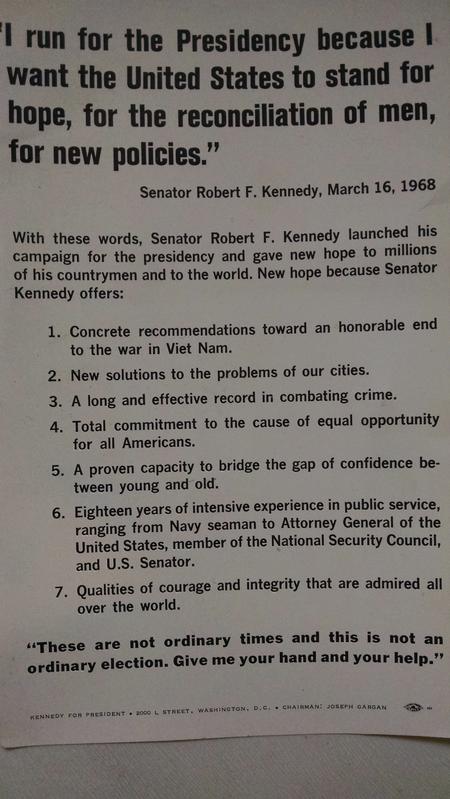RFK the Day After MLK Died: A Warning that Still Resonates
When Martin Luther King, Jr. was murdered. Robert Kennedy wanted to cancel all his presidential campaign events until after the funeral. Instead, at the urging of civil rights leaders, RFK delivered remarks that almost address events in 2018 as much as 1968.


On the evening that Dr. Martin Luther King, Jr. was assassinated 50 years ago, Sen. Robert Kennedy gave an impromptu speech in Indianapolis, telling the tearful crowd about the tragic event.
Kennedy was running for president and within weeks would be campaigning in Michigan.
But on that week he wanted to cancel all his political events until after King’s funeral.
Yet on April 5th, the day after King was killed, as riots spread across the nation, civil rights leaders pleaded with Kennedy to keep an appearance scheduled at the City Club of Cleveland.
They wanted him to talk about the importance of non-violence, knowing he had one of the most powerful perspectives of the issue, with the world having watched the events surrounding the death of his brother, President John F. Kennedy, in Dallas.
“Too often we honor swagger and bluster and the wielders of force. Too often we…make it easy for men of all shades of sanity to acquire whatever weapons and ammunition they desire.” — Robert F. Kennedy
Robert Kennedy had not talked much publicly about his brother’s death before mentioning it to the crowd in Indianapolis.
This time, in Cleveland, Kennedy prepared quiet, brief remarks on “the mindless menace of violence.”
A half-century later, Kennedy’s words sound as if they could still address the divisive issues in the U.S. of today.
“Too often we honor swagger and bluster and the wielders of force,” Kennedy said. “Too often we excuse those who are willing to build their own lives on the shattered dreams of others. (We) make it easy for men of all shades of sanity to acquire whatever weapons and ammunition they desire.”
It was not just violence driven by the gun or the bomb, he said, but the violence of kids who go hungry and without books.
And it was the violence, Kennedy said, of those Americans who regard people with a different skin color or belief as “aliens” threatening to take their jobs or hurt their families.
He maintained that no institution or political resolution could end the bloodshed.
Instead Kennedy called for Americans to look at all others “sharing in this short life,” and remember they were simply “human beings whom other human beings loved and needed.
“Perhaps that bond of common fate can begin to teach us something,” Kennedy concluded.
The gathering of business leaders responded with sustained applause.
About a month later Kennedy was in Detroit, having resumed his campaign for the presidency.
A month after that, Robert Kennedy himself was assassinated in Los Angeles.

